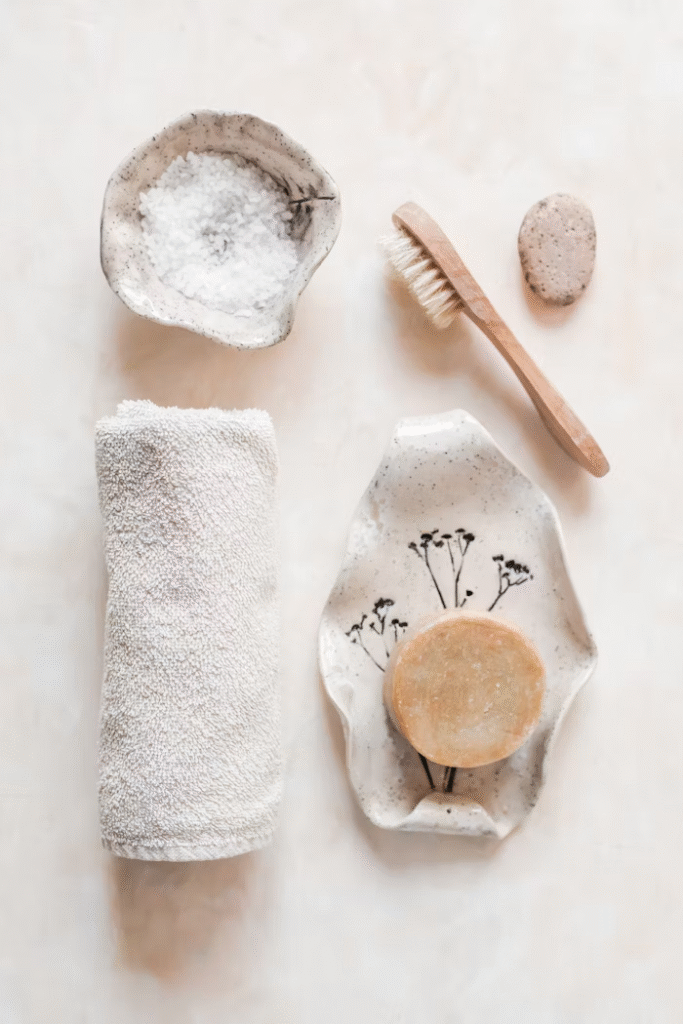The Social Side of Self-Care: Why Korean Spas Are Community Anchors
If you’ve ever typed a day spa near me and expected only cucumbers-on-the-eyes relaxation, you might be surprised by what you find at a Korean spa. Known for heat therapy, mindful bathing, and unhurried rest, Korean spas (jjimjilbang) are as much about community as they are about skincare. In places like Northern Virginia and Hampton Roads, they’ve become casual gathering spots where wellness feels shared, not solitary—part bathhouse, part living room, part cultural classroom.
From Solo Retreat to Shared Ritual
We tend to treat self-care as a solo act: noise-canceling headphones, a closed door, a calendar block. Korean spas invert that—wellness here is a collective ritual. The hum of conversation in a warm charcoal room, the gentle etiquette of taking turns at the cold plunge, the simple act of napping side by side in a salt cave—these moments create a rhythm that’s soothing because it’s social. The message is subtle but powerful: rest isn’t selfish; it’s communal.
Why the “Day Spa Near Me” Search Keeps Growing
When you search for a day spa near me, you’re likely looking for something close, easy, and effective. Korean spas deliver that—but they also offer time, the one luxury most spas can’t sell you. Admission is typically a day pass model that allows lingering. People read, stretch, catch up with friends, and drift between heat rooms without a clock ticking. In a high-velocity culture, this slow cadence becomes a neighborhood asset, a space where the community can exhale together.
What Makes Korean Spas Different
Heat as a Healing Language
Korean spas are built around rooms that each express heat differently—dry, humid, mineralized, or infrared-warmed. You’ll see jade, clay, salt, and charcoal rooms, each designed to help your body release tension and settle into a calmer baseline.
Bathing as Mindful Care
Gender-segregated bath areas typically include hot, warm, and cold pools, plus saunas and showers. The classic Korean body scrub is a meticulous exfoliation that leaves the skin unbelievably smooth. It’s not a pampering add-on; it’s a reset for circulation and skin health.
Rest as a Shared Value
Co-ed relaxation halls invite you to nap, read, or simply be. Families come during the day; friends gather at night. The quiet camaraderie fosters a soft accountability—when rest is normalized, it’s easier to allow yourself to rest, too.
Why Korean Spas Resonate in Virginia
If you’re searching for a spa in Virginia, you’ll find day spas focused on facials and massages. Add “Korean” to the query and the vibe changes. Type korean spa virginia, and you’ll land on places that blend East Asian hydrotherapy traditions with modern amenities. Virginia’s diverse communities—especially in Northern Virginia—make these spaces both familiar to Korean Americans and inviting to newcomers who want a respectful, educational introduction to the culture. The result is a bridge: a place to learn customs (like bathing etiquette) and to enjoy them alongside neighbors.
Community Benefits You Can Feel
1) Social Connection, Minus the Pressure
Unlike loud social environments, Korean spas offer low-stakes togetherness. You can chat softly or sit in companionable silence. It’s social wellness for introverts and extroverts alike.
2) Built-In Digital Detox
Phones are discouraged or restricted in wet and heat areas, which nudges you into present-moment awareness. Without constant notifications, the body downshifts—and so do conversations.
3) Intergenerational Wellness
You’ll often see multi-age groups: friends, siblings, parents with adult children. The space normalizes shared self-care, which can ripple outward—families who rest together often support each other’s well-being beyond the spa.
4) Cultural Literacy
New visitors learn etiquette: shower before soaking, bring two towels, keep voices low, hydrate often. These small gestures build respect and belonging—a social glue that strengthens local community.

Etiquette 101 (So Everyone Feels Welcome)
- Shower first. Cleanliness is non-negotiable before entering any pool or sauna.
- Honor quiet. Keep conversations soft; let others rest.
- Mind the dress code. Expect nudity in same-gender wet areas and shorts/t-shirts (usually provided) in co-ed rooms.
- Rotate heat and cold. Short sauna sessions followed by a cool rinse or cold plunge help regulate your body.
- Hydrate and snack wisely. Electrolytes, tea, and light meals help you enjoy the day without fatigue.
- Be scrub-ready. If you book a body scrub, arrive freshly soaked so technicians can work efficiently.
- Take your time. The beauty of a Korean spa is the lack of hurry—lean into it.
How to Choose a Spa in Virginia
When you’re weighing options for a spa in Virginia, use your day spa near me results as a starting point, then refine based on what matters to you:
- Amenity mix: Do you want more wet facilities (pools and steam) or a wider variety of dry heat rooms (salt, jade, clay)?
- Scrubs and treatments: If you’re aiming for a deep exfoliation, confirm Korean-style body scrubs are available and check how to book.
- Cleanliness and air quality: Good spas smell neutral, not perfumy. Heat rooms should feel dry and breathable, not stuffy.
- Crowd and hours: Late evenings can be calmer; weekends can buzz. Choose a time that fits your energy level.
- Food options: A small café with simple, nourishing dishes can extend your stay comfortably.
- Comfort with etiquette: If you’re new to bath culture, look for clear posted guidelines and friendly staff who answer questions.
A Micro-Guide for First-Timers
Plan a Gentle Circuit
- Rinse and soak in the warm pool for 5–10 minutes.
- Warm room (charcoal or jade) for 10–12 minutes.
- Cool shower or cold plunge (a quick dip does the trick).
- Repeat two or three cycles; finish with a short nap in the relaxation hall.
- Optional scrub mid-visit for baby-smooth skin, then light meal and herbal tea.
Bring (or Borrow) the Basics
Most Korean spas provide towels and a simple outfit for co-ed areas. You might want flip-flops, a refillable water bottle, and a clean hair tie.
Listen to Your Body
Heat should feel therapeutic, not punishing. If you get lightheaded, step out, cool down, and hydrate.
The Bigger Picture: Spas as Third Places
Sociologists call cafés and parks “third places”—not home, not work, but essential spaces where community happens. Korean spas fit that definition beautifully. They offer ritual without rigidity, structure without stress, and the kind of casual togetherness that’s increasingly rare. So the next time you search day spa near me, consider going where the steam rises and the room hushes—a place where self-care broadens into shared care, and where the community, quite literally, warms up together.
